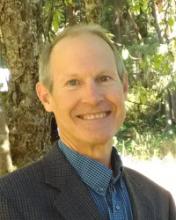A little more than a year ago, my colleague James Long suggested that we nominate author and journalist Masha Gessen for the UW Graduate School Public Lecture series. Masha had recently completed a well-received book, Surviving Autocracies, arguing that even the US is not immune to what was happening in places like Hungary. By the time that Yvette and Molly in the Graduate School were able to coordinate the talk and visit, a new international concern, Putin’s invasion of Ukraine, was at the top of the agenda. Remarkably, Masha Gessen is one of the world’s foremost experts and outspoken critics of Vladimir Putin, having worked as a journalist in Russia before and after Putin came to power. This should be a fascinating and informative talk. See the article in this newsletter for registration information (there are in-person and remote options).
One of the lessons Masha Gessen offers is that autocracies (systems governed by one person with absolute power) don’t always succeed through violent coercion. Viktor Orbán’s tenure in Hungary demonstrates how power can be consolidated through the gradual undermining of the rule of law and the understandable desire of ordinary people to avoid conflict and just go about their daily lives.
Our students, like most Americans, probably doubt that the same thing can really happen here. We are the world’s oldest democracy after all. But we do seem to be at a truly remarkable moment in American history where a large segment of the U.S. population continues to believe – with no evidence - that 2020 election was stolen from then President Trump. A recent article by Seattle Times columnist Danny Westneat warns that we are becoming inured to such falsehoods and to extremist behavior more generally. A congressional candidate in Washington State tweets about vigilantism and no one in his party responds. Party leaders describe the January 6th violent insurrection as “legitimate political discourse.” Actual legitimate political discourse also seems increasingly elusive as we increasingly seek out people who agree with us and avoid those who are likely to disagree. For many of us, identity has become more important than ideas or policy.
How do we move forward? I’ll be interested to hear what Masha Gessen has to say. But I am increasingly convinced of the importance of higher education and social science education in particular. Critical thinking may be an overused buzzword but I am proud of how our faculty and graduate students work to develop critical thinking at the UW. It is also such a pleasure to see students improve those skills through our small upper-division seminars, and through various intensive research opportunities offered in the department, such as the Honors Program, the CAPPP Undergraduate Fellows Program, the Center for Environmental Politics Undergraduate Fellows Program. In addition, many faculty mentor undergraduates' independent research projects on top of their normal teaching loads. It's hard to say no though. In my view, few things are more rewarding than advising an enthusiastic and highly motivated undergraduate.
And one of the proudest moments for many of these students is the opportunity to present their research at the campus-wide Undergraduate Research Symposium. The Symposium is open to the public and highly recommended. This year it will be held on Friday, May 20 in Mary Gates Hall. I hope to see you there!
